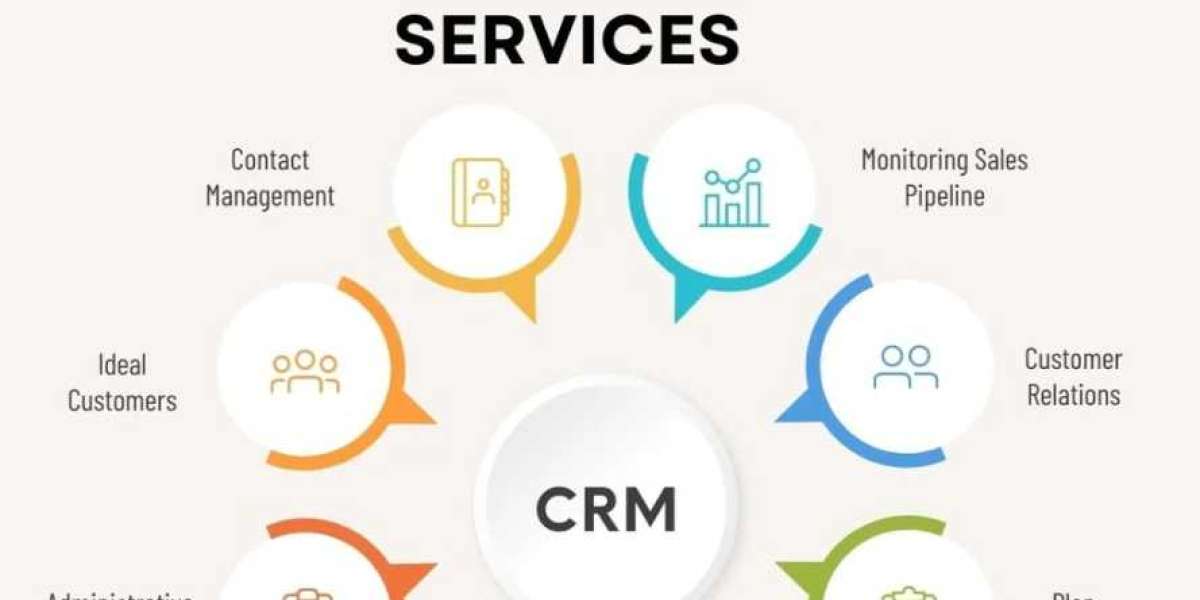Introduction to CRM Implementation Services
CRM Implementation Services involve the strategic planning, deployment, and integration of Customer Relationship Management (CRM) systems. These services help businesses manage customer interactions, streamline operations, and improve overall efficiency. Implementing a CRM system can significantly enhance customer service, sales processes, and marketing efforts.
Key Components of CRM Implementation Services
1. Needs Assessment and Planning
The first step in CRM implementation is a thorough needs assessment. This involves understanding the specific requirements of the business, identifying key objectives, and planning the implementation process.
- Business Analysis: Assess current processes, identify gaps, and determine how a CRM system can address these issues.
- Objective Setting: Define clear goals for the CRM implementation, such as improving customer service, increasing sales, or enhancing marketing efforts.
- Project Planning: Develop a detailed project plan that includes timelines, milestones, resources, and responsibilities.
2. CRM Selection and Customization
Choosing the right CRM system is crucial for successful implementation. The selected CRM should align with the business's needs and be customizable to meet specific requirements.
- Vendor Evaluation: Compare different CRM vendors based on features, scalability, integration capabilities, and cost.
- System Customization: Tailor the CRM system to match the business's workflows and processes. Customize fields, forms, dashboards, and reports to ensure the system meets user needs.
3. Data Migration and Integration
Data migration involves transferring data from existing systems to the new CRM. Integration ensures the CRM works seamlessly with other business systems.
- Data Mapping: Identify data sources and map data fields to ensure accurate migration.
- Data Cleansing: Cleanse data to remove duplicates, correct errors, and ensure consistency.
- System Integration: Integrate the CRM with other business systems, such as ERP, marketing automation, and customer support platforms.
4. User Training and Adoption
Effective user training is essential for successful CRM adoption. Training ensures users are comfortable with the new system and can utilize its features effectively.
- Training Programs: Develop comprehensive training programs, including workshops, webinars, and hands-on exercises.
- User Support: Provide ongoing support to address user queries and challenges. Encourage feedback to continuously improve the CRM system.
5. Testing and Quality Assurance
Thorough testing and quality assurance are critical to ensure the CRM system functions as expected.
- System Testing: Conduct functional and performance testing to identify and resolve issues.
- User Acceptance Testing (UAT): Involve end-users in testing to gather feedback and ensure the system meets their needs.
- Quality Assurance: Implement quality assurance processes to maintain system integrity and performance.
6. Go-Live and Post-Implementation Support
The go-live phase marks the official launch of the CRM system. Post-implementation support ensures smooth operation and addresses any issues that arise.
- Go-Live Planning: Prepare for the go-live phase with a detailed plan, including a support strategy for initial days.
- Monitoring: Monitor system performance closely after go-live to identify and resolve any issues promptly.
- Continuous Improvement: Regularly review system performance, gather user feedback, and implement improvements.
Benefits of Professional CRM Implementation Services
1. Expertise and Experience
Professional CRM implementation services bring expertise and experience to the table. They understand the complexities of CRM deployment and can navigate potential challenges effectively.
2. Customized Solutions
These services offer customized solutions tailored to the specific needs of the business. This ensures that the CRM system aligns with business processes and objectives.
3. Reduced Implementation Time
With a structured approach and experienced professionals, CRM implementation services can significantly reduce the time required to deploy the system.
4. Minimized Risks
Professional services help minimize risks associated with CRM implementation, such as data migration issues, integration challenges, and user adoption hurdles.
5. Ongoing Support and Maintenance
Post-implementation support and maintenance ensure the CRM system continues to function optimally and evolves with the business's needs.
Common Challenges in CRM Implementation and How to Overcome Them
1. Resistance to Change
Challenge: Employees may resist adopting the new CRM system due to familiarity with existing processes or fear of change.
Solution: Involve employees early in the implementation process, communicate the benefits of the new system, and provide adequate training and support. Foster a culture of change and address any concerns promptly.
2. Data Quality Issues
Challenge: Inaccurate or incomplete data can undermine the effectiveness of the CRM system.
Solution: Implement data governance practices to ensure data accuracy and consistency. Conduct data validation and cleansing before migration, and establish ongoing data management procedures.
3. Integration Complexities
Challenge: Integrating the CRM with other business systems can be complex and challenging.
Solution: Work with experienced integration specialists and use robust integration tools. Plan the integration carefully, ensuring that data flows seamlessly between systems.
4. Customization Overload
Challenge: Over-customization can lead to a complex and difficult-to-maintain CRM system.
Solution: Focus on essential customizations that align with business needs. Avoid unnecessary modifications and prioritize usability and scalability.
Best Practices for Successful CRM Implementation
1. Set Realistic Expectations
Set realistic expectations for the implementation process, timeline, and outcomes. Communicate clearly with stakeholders and ensure that everyone understands the project scope and objectives.
2. Engage Stakeholders
Involve key stakeholders from various departments in the implementation process. Their input and feedback are crucial for ensuring that the CRM system meets business needs and gains widespread acceptance.
3. Focus on User Experience
Design the CRM system with the end-user in mind. Ensure that the interface is user-friendly, intuitive, and aligned with users' workflows. Gather user feedback and make necessary adjustments to enhance the user experience.
4. Continuous Improvement
Treat CRM implementation as an ongoing process. Regularly review system performance, gather user feedback, and implement improvements. Stay updated with the latest features and updates from the CRM vendor to leverage new capabilities.
Conclusion
Implementing a CRM system can revolutionize the way businesses manage customer relationships, streamline operations, and drive growth. By leveraging professional CRM implementation services, organizations can ensure a successful deployment that delivers lasting benefits. From planning and customization to training and support, these services provide the expertise and resources needed to maximize the value of a CRM system.


